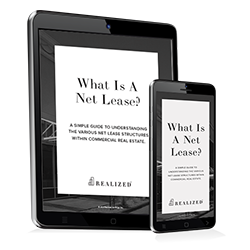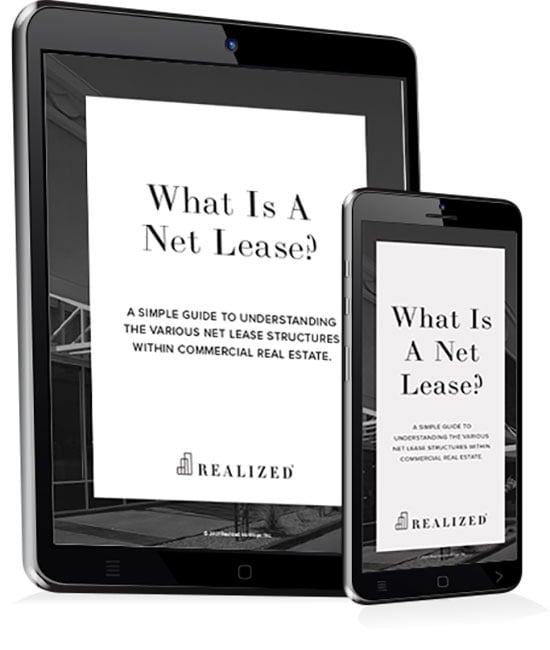
If you own a piece of land, entering into a triple net ground lease (NNN) can offer you long-term, passive income. By partnering with a developer on an NNN, you may be able to grow your real estate investment portfolio, earn money, and defer capital gains taxes you would have owed on selling your property.
Learn the basics of triple net ground leases and factors to take into account when considering this type of lease agreement.
Net and Ground Leases
Understanding a triple net ground lease requires solid knowledge of net and ground leases. A net lease is an arrangement in which a tenant agrees to pay a property’s fees, taxes, and maintenance expenses. Net leases are commonly used in commercial property contracts.
A ground lease is a contract that leases out a piece of land. Typically, the tenant owns a building or builds a structure on the land and pays an agreed-upon amount to the land’s owner. Ground leases are also common in commercial real estate transitions. For instance, if you own land, you may lease it to a developer to build retail property.
What Is a Triple Net Ground Lease?
A triple net ground lease (NNN) refers to the three responsibilities a tenant takes on when renting the land. Tenants pay rent and property taxes under a single net ground lease and rent, taxes, and insurance under a double net ground lease. If they sign an NNN, the tenant accepts responsibility for all property expenses such as:
- Real estate taxes
- Property insurance
- Maintenance expenses
- Rent
- Utilities
Benefits of NNN
Doing business with a developer and tenant under an NNN can benefit you as a property owner. If you have land that you want to develop or you are seeking a passive income on the land, you can enter into a long-term NNN.
NNNs can help manage investment risk and can provide a passive income. They also offer you a vehicle for commercial property investment. An NNN typically covers properties like banks, retail stores, office buildings, and restaurants and has a 10 to 15-year term.
Other potential benefits include profit from the appreciation of your land once amenities have been added. You can make a significant profit if you decide to sell your property after the lease. Alternatively, you can defer capital gains using a 1031 exchange to invest in like-kind property.
NNN Considerations for Investors
Opting for an NNN requires many considerations for investors. Before entering into an NNN agreement, familiarize yourself with additional factors and potential risks of such an arrangement.
For example, consider working with trustworthy developers and tenants for the project. Choose a developer with an excellent reputation and experience who will add value to your land with upscale buildings. Vet your tenants and understand your default risks in taking them on.
When designing an NNN contract, work with a real estate attorney to ensure you have a secure, legal contract. Negotiate with your tenant if you want to retain control of certain aspects of your property and include the provisions in the lease agreement.
Also, be aware that you will likely have tax liabilities on the income you make from the arrangement. A financial planner and tax advisor can help design a wealth-building strategy for your situation.
This material is for general information and educational purposes only. Information is based on data gathered from what we believe are reliable sources. It is not guaranteed as to accuracy, does not purport to be complete and is not intended to be used as a primary basis for investment decisions. It should also not be construed as advice meeting the particular investment needs of any investor. Realized does not provide tax or legal advice. This material is not a substitute for seeking the advice of a qualified professional for your individual situation. All real estate investments have the potential to lose value during the life of the investment. The income stream and depreciation schedule for any investment property may affect the property owner’s income bracket and/or tax status. Programs that depend on tenants for their revenue may suffer adverse consequences as a result of any financial difficulties, bankruptcy or insolvency of their tenants. Costs associated with a 1031 transaction may impact investor’s returns and may outweigh the tax benefits. An unfavorable tax ruling may cancel deferral of capital gains and result in immediate tax liabilities.



